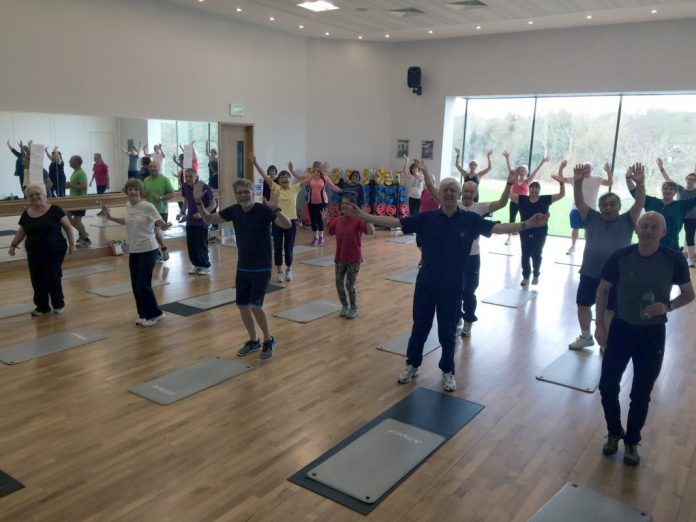Beki Cadd and Stephanie Bradbeer from Action PR highlight the importance of increasing leisure participation amongst disengaged groups within communities…
According to statistics from Sport England, 15.8 million adults play sport at least once a week. This represents an increase of 1.75 million since 2005, indicating the 2012 Olympic legacy is playing out as hoped. The numbers, however, do not tell the whole story. More men play sport than women (40.7% of men, 31.5% of women) and age is also a factor. While over half of 16-25-year-olds take part in at least one activity session a week, less than a third of older adults are similarly engaged. Take up is highest among professional workers, and while the numbers of black and minority ethnic groups playing sport have increased by nearly 700,000 since 2005, as well as the percentage of disabled people, these figures are still proportionately low.
Leisure operators need to be doing more to engage with a wider audience to combat these differences. By empowering community groups that are typically less engaged with physical activity, they are perfectly placed to provide opportunities to be healthier and more active.
“The key thing for us as a not-for-profit leisure operator is to broaden the reach of our centres and truly be a community-based provider delivering projects that are targeted towards these hard-to-reach groups,” says Richard Bagwell, Freedom Leisure Group Sport Development Manager. “This requires us to adapt our provision, use different venues, offer easy access trials, subsidised pricing and provide clear pathways from our short-term health programmes into longer term activities.”
Engaging with NGBs, the NHS and councils also helps to open up access to different population groups, as well as sources of funding.
“Working with partners in the community we can identify ways to help support these individuals and widen participation, by understanding and integrating with the needs of the local population. For example, in areas with little provision for teenagers, we can offer sessions that help to increase their self-esteem and encourage them to engage in physical activity.”
Combating the perception that the leisure centre is an intimidating space is another factor in broadening participation. Free taster sessions are a proven option in engaging new participants and demonstrating how exercise can be fun. Providing a separate stream for those with health conditions and lower fitness levels is also key.
“It is important for leisure facilities to cater to both the fit and healthy and those with longer term health issues, otherwise we are excluding a large percentage of the population,” says Mark Leahy, Everyone Active Regional Contract Manager. “Providing specialised programmes for these users will help to integrate them into the physical activity sphere and widen participation by promoting sustainability and lifelong health. Meeting their needs in a personalised setting means that individuals are much more likely to stay and further improve their health.”
Operators must also acknowledge the ageing population, considering specific classes for an older demographic. Low impact exercise and a social element have shown success in helping to engage this demographic. Some leisure operators are also training their staff to assist customers struggling with dementia and Alzheimer’s, as well as developing partnerships with organisations such as the Stroke Association and Age UK.
There are many possible solutions to encouraging more people in communities to get healthier and more active. With a focused, personalised method and by considering health across the board, operators are able to promote a sustainable approach to fitness and thereby look to increase participation in those currently underrepresented groups. Responding to the needs of the local community and working closely with the local authority means operators can offer a programme of activity to match.
CASE STUDY
Everyone Active centres in Ealing, Brent and Harrow have seen great success increasing participation – one of the key objectives. The year on year increase in centre attendance has been impressive, rising significantly since Everyone Active took over the contract, and up 13% from 2014/15-2015/16 across all boroughs.
Ealing in particular has seen great success with attendances up 25% compared to 2014/15.
This success comes from a programme of tailored outreach, to engage different ethnic and religious groups within the community. The team at Southall Sports Centre, Ealing, have been working closely with the largest Sikh Temple in the western hemisphere, visited by over 10,000 people every week. A discounted membership rate is offered to all attendees, and fitness and health awareness days at the temple have allowed Everyone Active to reach out to new members, promoting the benefit of exercise. In particular, the women’s only classes now on offer at Southall Sports Centre have been extremely popular with the Sikh Temple members.
The Harrow contract has worked hard to host disability sports days, which have been a huge success in getting more of the local disabled population in to the leisure centre and participating in a range of activities.
They also work closely with school sports partnerships, ensuring uptake on school swimming lessons has been very high, with a year on year increase.
Beki Cadd
Stephanie Bradbeer
Action PR
www.actionpr.co.uk
www.twitter.com/_ActionPR











